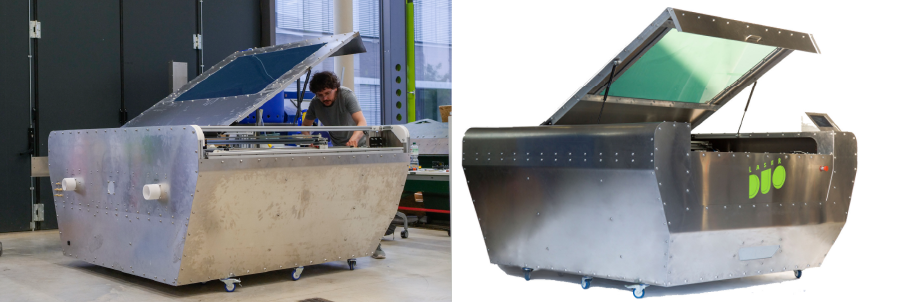Daniele Ingrassia develops innovative open source laser cutter at the FabLab in Kamp-Lintfort
Open source is set to shape our future since the idea allows users to actively satisfy their demands by applying free knowledge. Today’s open source projects range from software to hardware products, buildings, vehicles and machines, allowing everybody to freely replicate their designs and to acquire the knowledge that is needed to build them. Users are allowed to customize and improve existing projects to better suit their individual needs – free of charge.

With the emerge of FabLabs, hardware projects can now count on a knowledgeable worldwide community, continuously sharing and enhancing expertise on how to build open source projects using digital fabrication means. With the mission of permitting free access to digital technologies at low costs, FabLabs aim to be globally connected and productive.
It is this idea that inspired Daniele Ingrassia and Ahmed Abdellatif to develop and build his LaserDuo at the FabLab in Kamp-Lintfort. LaserDuo is an open source laser cutter machine that integrates two different laser sources as key features, being able to laser cut and engrave a wide range of materials. Having a 130W CO2 and a 75W Yag laser, LaserDuo can work with soft materials like wood, Plexiglas or leather as well as metals and hard materials such as stainless steel, brass, marble, copper, and aluminum. With a working area of 150 x100 cm it is easily possible to produce large prototypes like pieces of furniture, shop banners, elements for architectural structures, etc. Thanks its height of 50 cm it is also possible to cut and engrave on high objects, such as chairs, benches, frames, or body parts of cars.
When developing LaserDuo, the quality of the components, the solidity of the build and its safety were of the highest priority. This is why it has got fully metallic frame made out anodized aluminum, safety switches, a double shielded enclosed housing made with 1.5mm aluminum sheets, linear guides and a certified protective window. The design allows the user to access specific areas of the machine for maintenance and to replace parts.
The overall goal of the open source concept is to provide users with the knowledge needed to fix or even reproduce the machine themselves. To achieve this, several workshops are available in which customers can build their own LaserDuo and keep it afterwards. The first workshop with students from Tunisia has been successfully held at the OpenLab (Helmut Schmidt University) in Hamburg.
